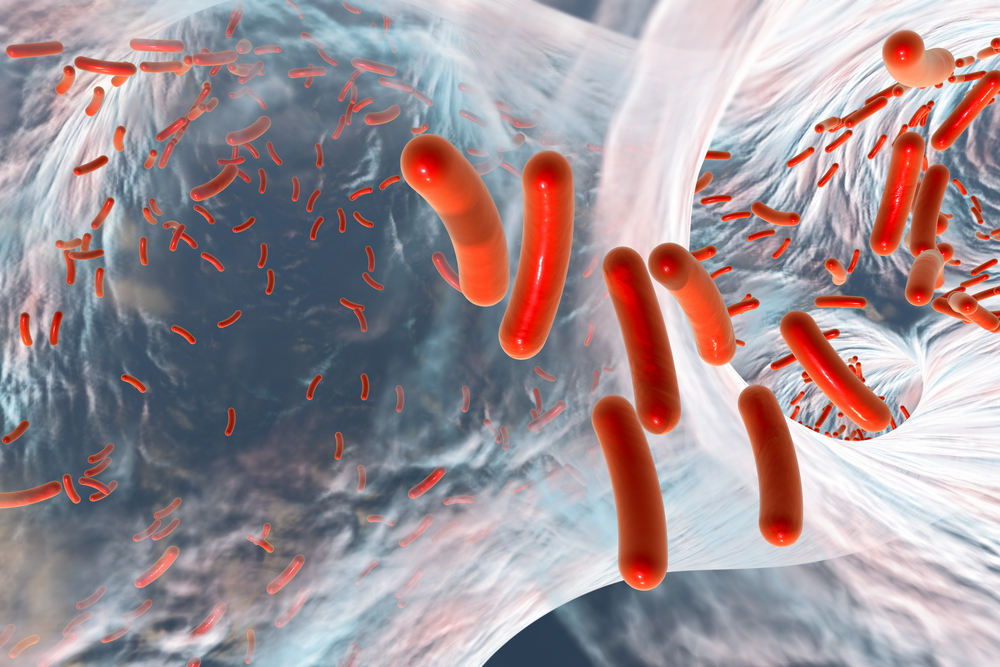Enzyme That Degrades Biofilm May Be Key to Treating Pseudomonas Lung Infection in CF
Written by |

A deeper understanding of how a bacterial enzyme works to degrade the protective layer that surrounds bacteria, helping it to adhere to tissues and to grow and spread, may offer new ways of treating persistent Pseudomonas aeruginosa lung infections in patients with cystic fibrosis (CF).
The study, “Biological function of a polysaccharide degrading enzyme in the periplasm,” was published in the journal Scientific Reports.
The difficulty of treating Pseudomonas aeruginosa in CF lies in the presence of this layer, called biofilm. Produced by the bacteria and composed of a sticky, glue-like substance that researchers call alginate, biofilm encases the bacteria to protect them from both natural immune defenses and antibiotics. It also helps bacteria to spread, being released in a controlled fashion.
“The bacteria is abundant in our environment and remains relatively harmless to healthy individuals, until carried to the vulnerable, for instance into hospitals, who cannot keep it out. It is so hard to fight because it is remarkably resistant against a broad range of antibiotics,” Bernd Rehm, a professor at Massey’s Institute of Fundamental Sciences in New Zealand and senior study author, said in a press release.
Curiously, biofilm-producing bacteria such as Pseudomonas also produce an enzyme that can degrade alginate. And while researchers have studied the enzyme, many questions about its function remain.
Researchers at Massey University discovered that the enzyme is not linked to the production of biofilm, but can control the way the biofilm helps the bacteria attach to tissues and spread.
By forcing the bacteria to produce more of the enzyme, the research team was able to see how the composition and properties of the biofilm changed.
“The protein influences the chemical composition of the bacteria, and by hijacking that protein we can stop it from taking a hold or spreading,” Rehm said. “The work improves our understanding of bacterial alginate production and provides new knowledge for alginate production and disease control.”
If the discovery can be translated into treatments that strip away the protective biofilm, it may finally become possible for CF patients to rid themselves of Pseudomonas infection. “Before this discovery, the bacteria was effectively able to take hold of patients with weak immune systems and doctors could do little but sit by and watch it attack the body and spread,” Rehm concluded.






